![]()
PRINCIPALITY of orient

the 21 th of june of the year 2009 has been costitued the Principality of orient, a costitutional monarchy founded by the head of the royal house of orient, His Imperial, Royal and Most Serene Highness Prince Leonardo I
the PRINCIPALITY is an indipendent sovereign micronational state based on respect, honesty and justice
the flag of the principality is made with the personal coat of arms of the sovereign Crown Prince with a blue bach borded or
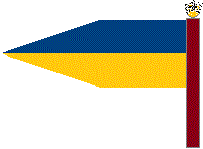
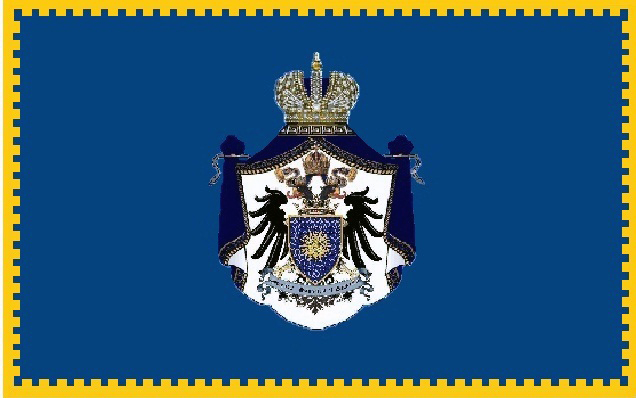
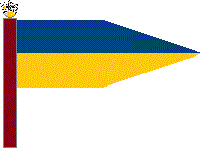
the coat of arms of the royal prince, along with the titles come from his own family and THE OWNERSHIP have been recognized and certified by THE NOTARY and the hight court of jiustice of the ITALIAN REPUBLIC.(The sentence has been published in the official journal of the italian republic)
the official colors of the state are blue and gold
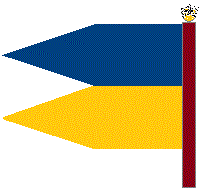

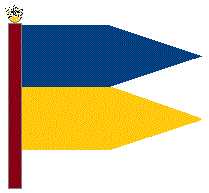
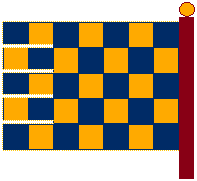
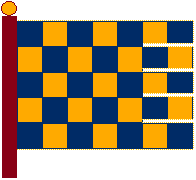
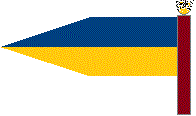
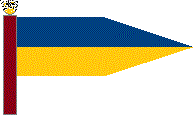
The state is costitued by the royal sovereign Prince
the high council ,the council of the sage,
and the several ministeries
in accordance with the Montevideo Convention of 1933 it states that a nation does not have to be recognized by another nation in order for it to exist and be sovereign
Article 3 The political existence of the state is independent of recognition by the other states. Even before recognition the state has the right to defend its integrity and independence, to provide for its conservation and prosperity, and consequently to organize itself as it sees fit, to legislate upon its interests, administer its services, and to define the jurisdiction and competence of its courts
Article 6 of the Montevideo Convention states:
The recognition a state merely signifies tha the state which recognozes it accepted the personality of the other with all the rights and duties determined by international law Recognition is unconditional and irrevocable.
According to the the united nation a micronation is one which has less than two million citizens.
Universal Declaration of Human Rights
UDHR Article 2
Everyone is entitled to the same rights without distinction, and no distinction shall be made on the basis of the political jurisdictional, or international status of a country or territory to which a person belongs.
UDHR Article 13
Everyone has the right to freedom of movement and residence within the borders of each state. Everyone also has the right to leave any country, including his own, and to return to his country.
UDHR Article 15
Everyone has the right to a nationality, and no one shall be arbitrarily deprived of his nationality, nor denied the right to change his nationality.
UDHR Article 17
Everyone has the right to own property alone, as well as in association with others, and no one shall be arbitrarily deprived of his property.
UDHR Article 18
Everyone has the right to freedom of thought, conscience, and religion.
UDHR Article 21
Everyone has the right to take part in the government of his country, directly or through freely chosen representatives.
UDRP Article 2
A people have the right to their historical abode, where they can implement their right to self-determination and other rights.
UDRP Article 3
A people have the inalienable right to sovereignty over the natural wealth and resources of their territory
UDRP Article 4
A people have the right to self-determination. Any norm contradicting the right to self-determination is illegal, including the principle of territorial integrity of states.
UDRP Article 5
The right to self-determination includes the right to create one's own state.
UDRP Article 7
The vast majority of peoples have Diasporas. Hence the right of a people to form worldwide representative bodies naturally follows. No state may oppose it, given that belonging to the citizenship of a state, does not exclude belonging to a certain people.
UDRP Article 11
A people have a right to their own culture, language, and customs.
UDRP Article 15
A people have a right to ecological security, and survival of their environment
The exercise of these rights has no other limitation than the exercise of the rights of other states according to international law.
UDHR: Taken from Universal
Declaration of Human Rights
UDRP: Taken from Universal Declaration of the Rights of Peoples
Universal Declaration of the Rights of Peoples
UDRP Article 2
A people have the right to their historical abode, where they can implement their right to self-determination and other rights.
UDRP Article 3
A people have the inalienable right to sovereignty over the natural wealth and resources of their territory
UDRP Article 4
A people have the right to self-determination. Any norm contradicting the right to self-determination is illegal, including the principle of territorial integrity of states.
UDRP Article 5
The right to self-determination includes the right to create one's own state.
UDRP Article 7
The vast majority of peoples have Diasporas. Hence the right of a people to form worldwide representative bodies naturally follows. No state may oppose it, given that belonging to the citizenship of a state, does not exclude belonging to a certain people.
UDRP Article 11
A people have a right to their own culture, language, and customs.
UDRP Article 15
A people have a right to ecological security, and survival of their environment
The exercise of these rights has no other limitation than the exercise of the rights of other states according to international law.
we invite our citiziens to respect the law of the countries where they live ,pleasant they do not conflict with the human rights and peoples
THE PRINCIPALITY OF ORIENT SUPPORT THE DECLARATION OF WASHINGTON november 2008
UDHR: Taken from Universal
Declaration of Human Rights
UDRP: Taken from Universal Declaration of the Rights of Peoples
http://micronations.wikia.com/wiki/PRINCIPALITY_OF_ORIENT
http://www.angelfire.com/nv/micronations/newcountry.html
HOME
